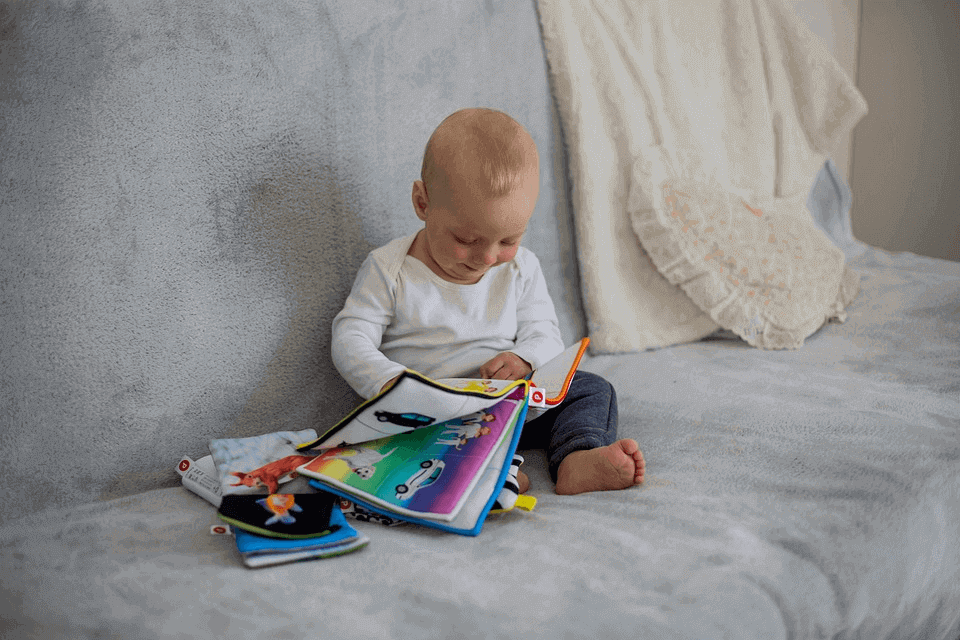What Is Early Development?

Quite often, the question arises: “What is early development?” The term has completely disappeared today, has become unfashionable, and a bunch of opponents of early development has appeared.
Psychologists write articles about how harmful it is for a child to read and write early, mothers complain that everything went to school and the children are bored to study, physiologists say about the incorrect physical development associated with early learning. They say that early development gives nothing in the future.
Is it so? What gives early development and is it necessary? Unfortunately, most parents and teachers perceive everything in one place. Everyone absolutely forgets that any action with a child is a development. Moreover, since the child is small, this is called an early development.
Do you and our child like to read toddler books?
Do you both paint with sticks in the sand?
Did you give him scissors at 2.5 years old?
Does your child love plasticine?
Do you both put on funny experiences?
Do you dance and sing songs with your child?
This is all essential for the early development of the child. In the world, there are many ideas and systems for the education and development of preschoolers. Choose what is closer and more understandable to you and your baby.
Importance of Early Learning
I am absolutely convinced that any modern child needs development. Nothing just happens. Everyone knows about the “children of Mowgli.” They were definitely not involved in early learning and development, they did not go to kindergartens, did not communicate with peers, they did not read books, and no one played with them. Some of them lived in human society, but the speech did not take shape.
Of course, there are nugget children who went to a simple kindergarten in childhood and grew up talented and brilliant. Nevertheless, an ordinary child needs to develop the inherent nature and try to expand his horizons and opportunities.
You just need to understand: early development does not necessarily know all the numbers in 2 years, to be able to read and play the violin in three, to know 100 flags of countries, to win in chess tournaments.
Let us decide on the name. I would say this: each child needs a harmonious and timely development in accordance with the capabilities, needs, and interests of this child. It turned out to be cumbersome, but this definition is consistent with my ideas.
What do I mean by harmony?
Absolutely everyone wants his or her children to be healthy. In addition, there are no disagreements on this issue. If we speak primitively, then for health we need a regimen, proper nutrition, walking, and sports by age. Therefore, it is recommended for the parents to walk with the children, run, jump, swim, play outdoor games. If you are limited in time and choose between developmental activity and a walk, then opt for a walk.
Emotional development is also a necessary part of what is given in childhood. Kiss children, hug, tickle, do massages, throw babies. Do not forget to say such simple words as “pity”, “share”, “hug”, and “stroke”. Teach your children to notice those who need help. Teach empathy, respect, and admiration. Even the smallest child must be taught to praise others.
Draw the attention of children to the beautiful. On clouds and trees, on paintings and household items that surround them. The development of ear for music, smell, sensory perception - these are all elements of the early development of the child.
Academic knowledge is also part of harmonious development. Everyone understands that the child needs to develop speech, give knowledge about the world around him, and teach self-care skills.
Maybe this is not enough.
Today, a small child should have a certain amount of knowledge and skills. In today’s world, the most serious competition. Children who are not involved in activities and discussions are very far behind. Yes, you can catch up. But! Until a certain age. The child must, in accordance with his age, draw and sculpt, build houses and play lotto, draw a circle and “cook” dinner, cut, glue, assemble, select the quotient as a whole and vice versa. I will not list everything that children play before school. However, focused “didactic” games are necessary. These classes are necessary for the lives of babies. Actually, all this develops thinking, logic, memory, attention - the most important things for a normal life. All this develops easily and simply.
Thinking development processes have been little studied. A huge number of specialists of different profiles are working on this, but 10-20 years pass and we see that theories are completely changing. It is a great practice when you speak two languages with your baby from birth. Then by the age of five, the child is fluent in two languages. Many families practice more than two languages - the results are also very good. However, with all the changing methods, one thing remains - a child who knows how to analyze information and is socially open has more chances to succeed in life. These are fundamental things in early development.
Timeliness of classes.
Here it is appropriate to talk about early reading (in 2-3 years), about mathematics, about learning languages (learning, not natural perception) and much other knowledge that gives a clear advance in the physiological capabilities of the child.
Should we consider advanced learning?
I am opposed to advanced training. Everything has its time. In my understanding, this gives nothing and takes a lot of time that can be spent on another. However, I also disagree with everyone who says in no case not to teach children to read until 5-6 years old. Here comes the principle - about the correspondence of the possibilities, interests, and abilities of a given child. If a child approaches the piano and at the age of three manages to find the note “do” in different octaves, he must be taught music. In addition, if the parents are not very ambitious and remember the harmonious upbringing of the personality, then the music will not take all the free time of the baby, it will be a joy and will benefit.
Therefore, it is with reading. If the kid asks to name the letters and puts them into syllables himself - of course, you need to help him and start learning. Here the most important thing is that there are no distortions and “swotting” in one direction. In the game, teach an interested child to read - why not? Children can read at 4 years old. The reading technique is good, and reading comprehension is normal. However, these children “led” their parents and not vice versa.
What about Math and Science?
There are even children with obvious mathematical skills. When a child understands easy mathematical concepts, try playing mathematics that is more complex. Moreover, this will not be an early (leading) development. This will be the training of this child in a suitable situation. Just remember: if your child in childhood is an excellent mathematician, this does not give you confidence that you are raising a future Lobachevsky. Perhaps he will be interested in completely different sciences, but the analysis and logic inherent in childhood will remain. However, there are children who at 4 years old cannot count to five, whereas, there are four-year-olds who added and subtracted within a dozen in the mind. However, do not compare your child with others, evaluate successes or be upset by failures. Anything that is great for other children might not always be suitable for your child.
Reading and Drawing
Many mothers complain - the baby does not want to read or listen to books! One option: the child is simply not mature! Read aloud calmly and wait for him to sit next to him. On the other hand, postpone reading for a couple of months.
Moms complain that the child does not like to draw, assemble puzzles or designers, does not hold a pencil well, or does not like plasticine. Do not hurry. Perhaps soon the situation with unloved activities will change.
However, do not forget about its priorities: what is right for your child. A kid who does not want to draw will be happy to color what he is interested in - a typewriter, a princess, the hero of a favorite cartoon. Moreover, he will put the puzzle together on his own theme, and in the book, he will look at the pictures and listen to the light text.
The main thing in the learning process is the person who is opposite you. In addition, it does not matter - he is 15 years old. Your task as a parent-teacher is to make the world interesting, learning easy and beloved.
Conclusion
Children are often compared to flowers. We understand that almost all flowers will grow and bloom in normal weather. But! If you take care of them, then the flowers will become stronger, more beautiful, and more viable.
Early development is necessary! You need to understand what and why you are doing. Always take into account the interests of the child and not are carried away by one of the sides of development. Your children are wonderful in their own way with their own pace of growth and development. Do not compare it with the others and do not rush it.
C





